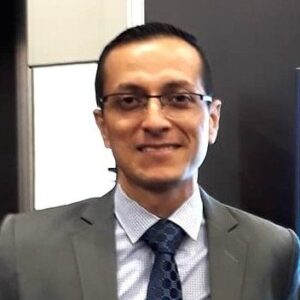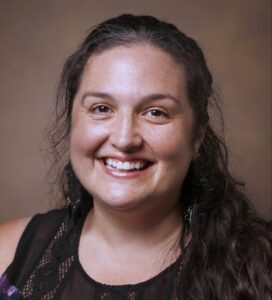In Fall 2020, CERCLL hosted two three-part professional development webinar series for language and culture educators that focused on Social Justice and Literacy-based Lesson Planning. These events were recorded, and several have accompanying materials including further resources that can be used in the classroom, and references that may be useful for educators working on these topics. To access the presenter bios, recordings and these additional materials, click on the links below.
Literacy-based Lesson Planning in the Language Classroom
Re-Envisioning Writing Instruction Using a Design Approach
Webinar presented by Heather Willis Allen (University of Wisconsin-Madison).
Writing is a critical skill in personal, educational, and professional domains, yet its role in L2 (second language) education in the United States is unclear and several recent studies have identified presentational writing as the most difficult modality to teach and the one that students struggle with the most. In this 90-minute webinar, we will explore the principles of Design writing instruction and discuss pedagogical examples of how this approach can be used to integrate L2 reading and writing, to facilitate learners’ familiarity with and use of appropriate L2 writing conventions, and to foster dialogue around the process and products of L2 writing. For the application stage of this workshop, please bring a presentational writing assignment that you have used in the past and want to improve or revise.
View the webinar recording here.
Multimodal Pedagogies in the L2 Classroom: Moving from Language to a Communication Paradigm
 Webinar presented by José Aldemar Álvarez Valencia (Universidad del Valle, Cali, Colombia).
Webinar presented by José Aldemar Álvarez Valencia (Universidad del Valle, Cali, Colombia).
The current communication landscape shows that communication is multimodal by nature. This new perspective on language and communication impacts second language acquisition and pedagogical practices directly. Multimodal pedagogies intend to bring this perspective into second/foreign language classrooms by highlighting the centrality of modes of communication and transmodal practices in the design of tasks that engage learners in processes of language/communication appropriation. By looking at language as one more semiotic resource among many others that make up communication ecologies, multimodal pedagogies recognize and look for ways to articulate and rearticulate students’ cultural semiotic resources, including their languages, their embodied communicative practices, and their identity affiliations.
View the webinar recording here.
Crafting Compelling Experiences: The Power of Stories, Scaffolding, & Sharing
Webinar presented by Cherice Montgomery (Brigham Young University).
Filmmakers are experts at producing memorable movies that educate, entertain, and inspire their audiences. Teachers have similar goals, but sometimes hesitate to engage learners with authentic texts or “real life issues,” fearing that the necessary language will be too complex for them to understand. During this 90-minute, interactive webinar, you will: (1) learn a step-by-step process for skillfully integrating culturally authentic texts into meaningful interpretive communication activities; (2) explore effective techniques for supporting learners’ comprehension; (3) experience interactive activities for assessing learners’ understanding. Bring your textbook, a lesson you’d like to improve, and your creativity!
View the webinar recording here.
Social Justice in the Language Classroom
Some Considerations for Social Justice Teaching in a World Language Setting: From Self to Students to World
 Webinar presented by Michelle Nicola (Portland Public Schools).
Webinar presented by Michelle Nicola (Portland Public Schools).
What do we mean when we say that we are social justice educators? What are concrete actions that social justice educators take? What beliefs or mindsets do we adopt? This webinar will help educators define what they mean by social justice education, and offer suggestions for how to incorporate self-reflection, relationship building & curriculum design as tools to recognize and interrupt inequitable patterns and practices in our world language classrooms and beyond. Participants will also receive a few lesson plan ideas that they can build on to meet their own communities’ social justice goals.
View the webinar recording here.
Transformative Learning in a Social Justice Oriented Language Classroom
Webinar presented by Stacey Margarita Johnson (Vanderbilt University).
Instructors building social justice into their language teaching often report that they hope their language classrooms will be sites of transformative learning and personal growth. As teachers, we want our teaching to make the world better and inspire students to become engaged citizens. Although we might hope for transformative learning, we don’t always know how it happens or how to guide our students through the process of transformation. This webinar will explore the steps in transformative learning, its connection to critical pedagogy and social justice, and, most importantly, ways language teachers can promote transformative learning through instructional choices that align with research and best practices in second language acquisition.
View the webinar recording here.
Cultural and Linguistic Competence through Social Justice
In this webinar, presented by L. J. Randolph, Ed.D., associate professor of Spanish and Education and coordinator of the World Language Teacher Education Program, University of North Carolina, Wilmington, participants will discuss the various frameworks that inform social justice in language education and explore ways to connect critical and social justice-oriented pedagogies to language learning goals. The presenter will share authentic resources, lesson ideas, and sample activities for a variety of proficiency levels. The webinar will also include a specific emphasis on using technological tools for resource selection, student engagement, assessment, and professional development. Participants will leave with a better understanding of how social justice learning goals and activities can be effectively embedded into their existing curricula.
View the webinar recording here.

